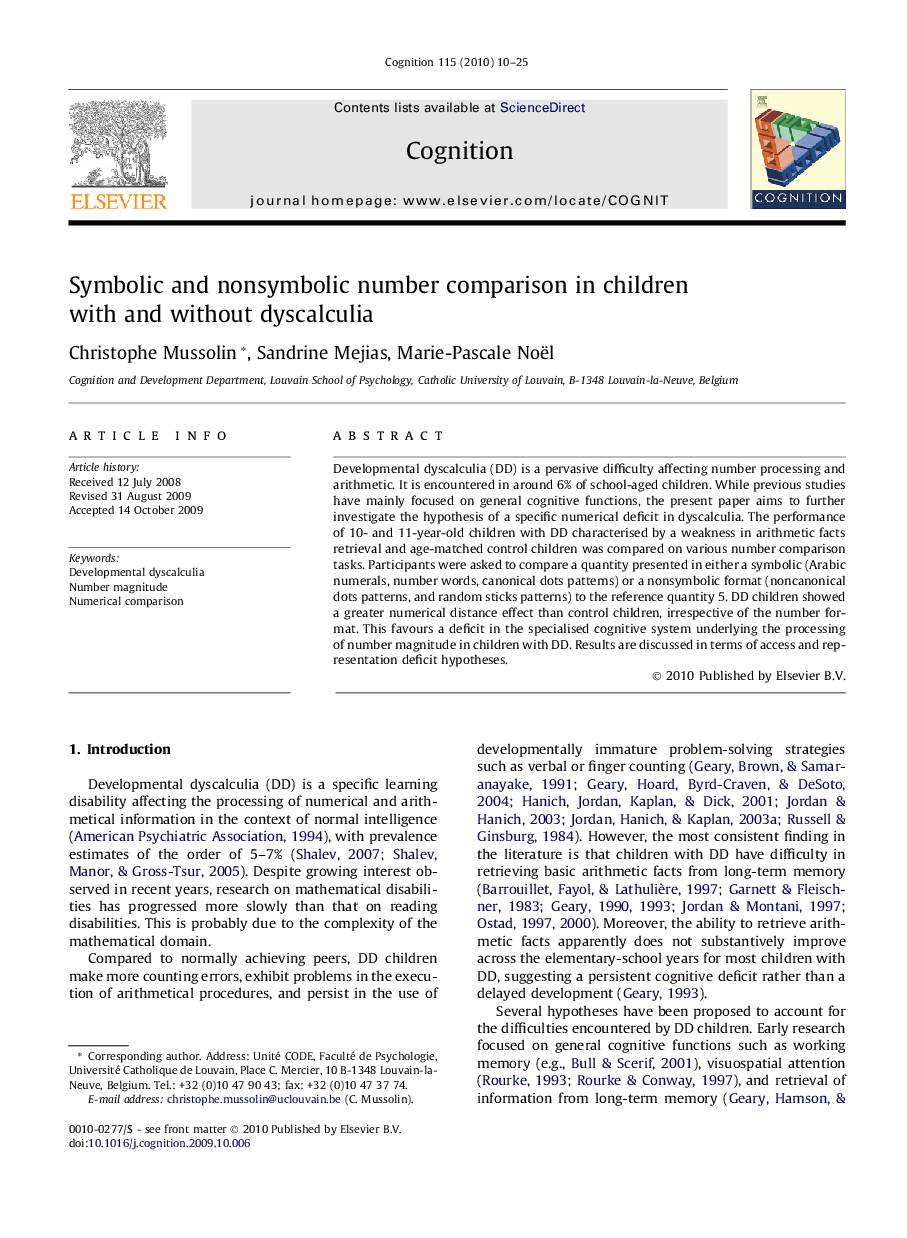| Article ID | Journal | Published Year | Pages | File Type |
|---|---|---|---|---|
| 926784 | Cognition | 2010 | 16 Pages |
Developmental dyscalculia (DD) is a pervasive difficulty affecting number processing and arithmetic. It is encountered in around 6% of school-aged children. While previous studies have mainly focused on general cognitive functions, the present paper aims to further investigate the hypothesis of a specific numerical deficit in dyscalculia. The performance of 10- and 11-year-old children with DD characterised by a weakness in arithmetic facts retrieval and age-matched control children was compared on various number comparison tasks. Participants were asked to compare a quantity presented in either a symbolic (Arabic numerals, number words, canonical dots patterns) or a nonsymbolic format (noncanonical dots patterns, and random sticks patterns) to the reference quantity 5. DD children showed a greater numerical distance effect than control children, irrespective of the number format. This favours a deficit in the specialised cognitive system underlying the processing of number magnitude in children with DD. Results are discussed in terms of access and representation deficit hypotheses.
